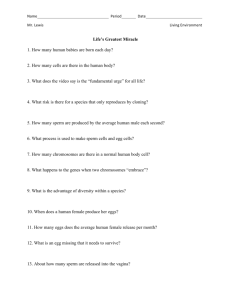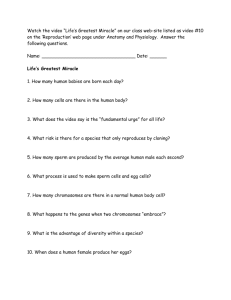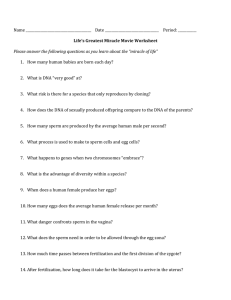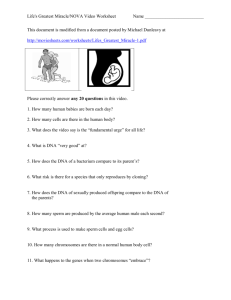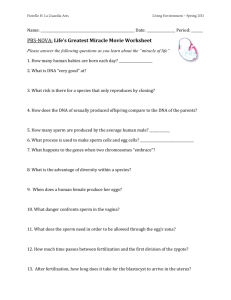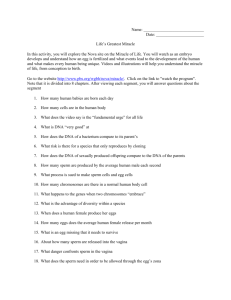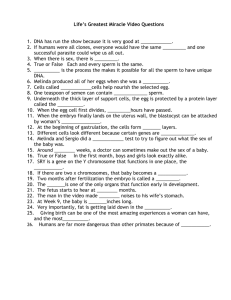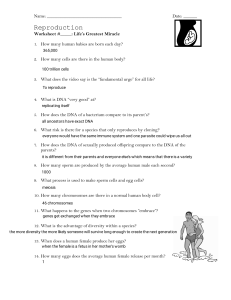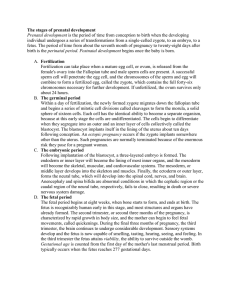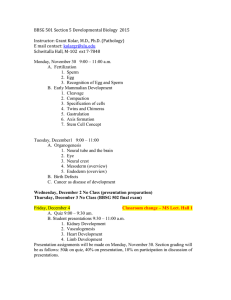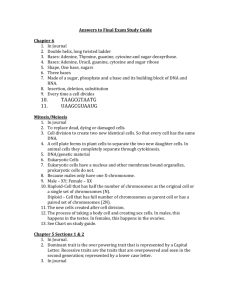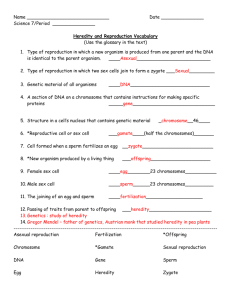"Life's Greatest Miracle" Worksheet Questions
advertisement
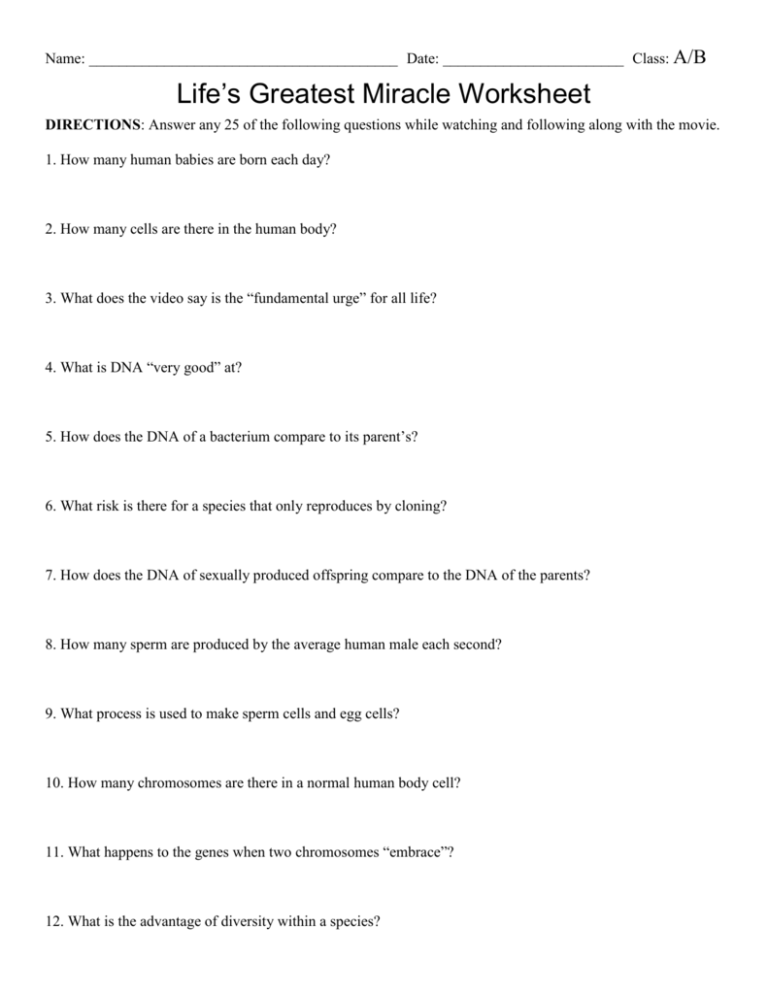
Name: _________________________________________ Date: ________________________ Class: A/B Life’s Greatest Miracle Worksheet DIRECTIONS: Answer any 25 of the following questions while watching and following along with the movie. 1. How many human babies are born each day? 2. How many cells are there in the human body? 3. What does the video say is the “fundamental urge” for all life? 4. What is DNA “very good” at? 5. How does the DNA of a bacterium compare to its parent’s? 6. What risk is there for a species that only reproduces by cloning? 7. How does the DNA of sexually produced offspring compare to the DNA of the parents? 8. How many sperm are produced by the average human male each second? 9. What process is used to make sperm cells and egg cells? 10. How many chromosomes are there in a normal human body cell? 11. What happens to the genes when two chromosomes “embrace”? 12. What is the advantage of diversity within a species? 13. When does a human female produce her eggs? 14. How many eggs does the average human female release per month? 15. What is an egg missing that it needs to survive? 16. About how many sperm are released into the vagina? 17. What danger confronts sperm in the vagina? 18. What does the sperm need in order to be allowed through the egg’s zona? 19. How much time passes between fertilization and the first division of the zygote? 20. What happens if the dividing zygote accidentally separates into two? 21. After fertilization, how long does it take for the blastocyst to arrive in the uterus? 22. What risk does the blastocyst face after it attaches to the uterus? 23. What is gastrulation? 24. What will the lower layer of cells develop into? 25. What will the middle layer of cells develop into? 26. What will the outer layer of cells develop into? 27. How long is the embryo after 4ó weeks? 28. True or false: All cells have the same genes. 29. What does a gene do when it has been turned on? 30. What do the following proteins do? a. Collagen: b. Crystalline: c. Actin and myosin: d. Hemoglobin: 31. How do cells communicate with each other? 32. How is the Y chromosome different from the X chromosome? 33. Where specifically does the baby get its nutrients from? 34. Do the baby’s and mother’s blood ever mix? 35. How old is the fetus when it gains the ability to hear sound? 36. What is the main job of the fetus during the last trimester? 37. What does myelin do? 38. Why is birth more dangerous for humans than for other animals?
